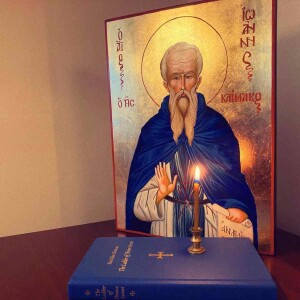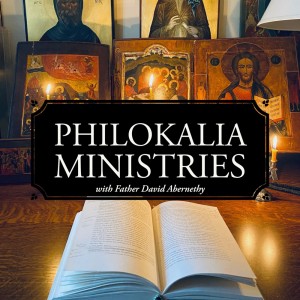
- Podcast Features
-
Monetization
-
Ads Marketplace
Join Ads Marketplace to earn through podcast sponsorships.
-
PodAds
Manage your ads with dynamic ad insertion capability.
-
Apple Podcasts Subscriptions Integration
Monetize with Apple Podcasts Subscriptions via Podbean.
-
Live Streaming
Earn rewards and recurring income from Fan Club membership.
-
Ads Marketplace
- Podbean App
-
Help and Support
-
Help Center
Get the answers and support you need.
-
Podbean Academy
Resources and guides to launch, grow, and monetize podcast.
-
Podbean Blog
Stay updated with the latest podcasting tips and trends.
-
What’s New
Check out our newest and recently released features!
-
Podcasting Smarter
Podcast interviews, best practices, and helpful tips.
-
Help Center
-
Popular Topics
-
How to Start a Podcast
The step-by-step guide to start your own podcast.
-
How to Start a Live Podcast
Create the best live podcast and engage your audience.
-
How to Monetize a Podcast
Tips on making the decision to monetize your podcast.
-
How to Promote Your Podcast
The best ways to get more eyes and ears on your podcast.
-
Podcast Advertising 101
Everything you need to know about podcast advertising.
-
Mobile Podcast Recording Guide
The ultimate guide to recording a podcast on your phone.
-
How to Use Group Recording
Steps to set up and use group recording in the Podbean app.
-
How to Start a Podcast
-
Podcasting
- Podcast Features
-
Monetization
-
Ads Marketplace
Join Ads Marketplace to earn through podcast sponsorships.
-
PodAds
Manage your ads with dynamic ad insertion capability.
-
Apple Podcasts Subscriptions Integration
Monetize with Apple Podcasts Subscriptions via Podbean.
-
Live Streaming
Earn rewards and recurring income from Fan Club membership.
-
Ads Marketplace
- Podbean App
- Advertisers
- Enterprise
- Pricing
-
Resources
-
Help and Support
-
Help Center
Get the answers and support you need.
-
Podbean Academy
Resources and guides to launch, grow, and monetize podcast.
-
Podbean Blog
Stay updated with the latest podcasting tips and trends.
-
What’s New
Check out our newest and recently released features!
-
Podcasting Smarter
Podcast interviews, best practices, and helpful tips.
-
Help Center
-
Popular Topics
-
How to Start a Podcast
The step-by-step guide to start your own podcast.
-
How to Start a Live Podcast
Create the best live podcast and engage your audience.
-
How to Monetize a Podcast
Tips on making the decision to monetize your podcast.
-
How to Promote Your Podcast
The best ways to get more eyes and ears on your podcast.
-
Podcast Advertising 101
Everything you need to know about podcast advertising.
-
Mobile Podcast Recording Guide
The ultimate guide to recording a podcast on your phone.
-
How to Use Group Recording
Steps to set up and use group recording in the Podbean app.
-
How to Start a Podcast
-
Help and Support
- Discover

How do we talk about and understand despondency? I never heard about the word or the nature of the vice until I was in my 20s and after having read the fathers. And yet we hear from the fathers that it is the greatest and gravest of the eight capital vices. It afflicts the soul in such a way that it draws it into darkness. The soul loses its capacity to see the presence of God or to love the things of God. It becomes most dangerous when we are engaged in the spiritual life in isolation; either as those who live the life of a hermit, or as those who see the spiritual life as a private affair. We live in a radical solidarity with each other, and with God. Our understanding of this, and our embrace of that reality may be the one thing that keeps us from falling into a general death.
This demon uses the most subtle forms of temptation to make us lax in our spiritual practice or come to despise it all together. There are very few remedies for it for this reason. One must remember death and the brevity of our life. We must understand that we are in the end times and see the urgency of the moment. We must also cling to obedience; placing our thoughts before another and allow them to guide us when we cannot see the path before us.
Prayer filled with hope, St. John tells us, is the only thing that brings this vice to utter death. Only when we cling to He who is life and love and hope and let go of the illusion that we can simply endure the spiritual trials of this world on our own will this vice be conquered. But once it is conquered, a person has come to experience all that is good; they are prepared for every spiritual battle that lies ahead.
---
Text of chat during the group:
More Episodes
 2023-01-02
2023-01-02
 1.2k
1.2k
 2022-12-19
2022-12-19
 1.3k
1.3k
 2022-12-12
2022-12-12
 1.2k
1.2k
 2022-12-06
2022-12-06
 1.3k
1.3k
 2022-11-22
2022-11-22
 1.2k
1.2k
 2022-11-14
2022-11-14
 1.1k
1.1k
 2022-11-10
2022-11-10
 1.5k
1.5k
 2022-11-02
2022-11-02
 1.5k
1.5k
 2022-10-31
2022-10-31
 1.3k
1.3k
 2022-10-26
2022-10-26
 1.8k
1.8k
 2022-10-25
2022-10-25
 1.2k
1.2k
 2022-10-19
2022-10-19
 1.5k
1.5k
 2022-10-17
2022-10-17
 1.2k
1.2k
 2022-10-12
2022-10-12
 1.5k
1.5k
Create your
podcast in
minutes
- Full-featured podcast site
- Unlimited storage and bandwidth
- Comprehensive podcast stats
- Distribute to Apple Podcasts, Spotify, and more
- Make money with your podcast
It is Free
- Privacy Policy
- Cookie Policy
- Terms of Use
- Consent Preferences
- Copyright © 2015-2025 Podbean.com


